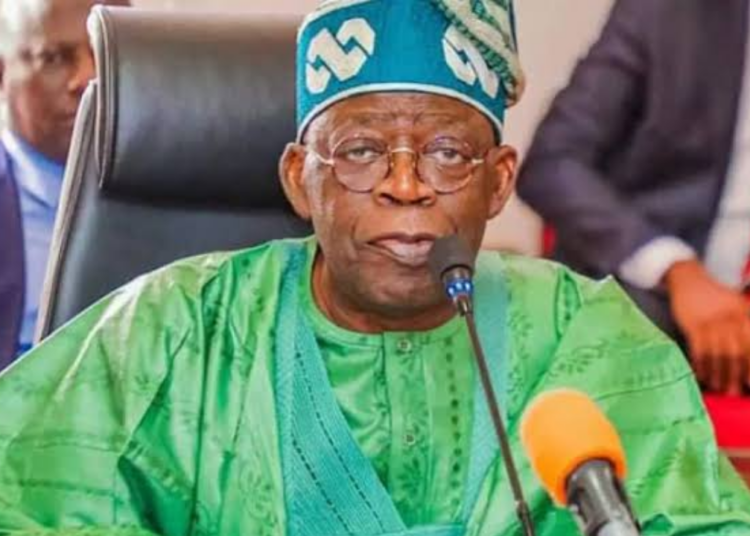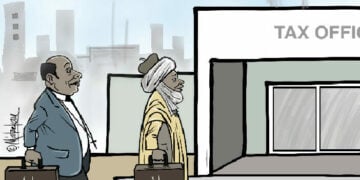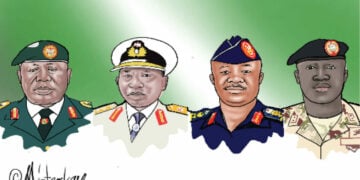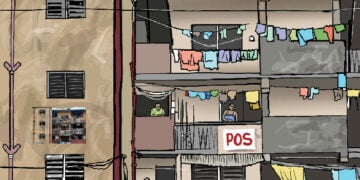“We are ready to improve relations. Africa has been the centerpiece of Nigeria’s foreign policy. I believe in Africa. We have the necessity to grow the continent. The world’s economy is wobbling, and Africa has been left behind. On risk factors, Africa is always placed high, with higher interest rates on borrowing. We are always classified as high risk. We must work together for systematic recovery and growth.”
President Bola Ahmed Tinubu while receiving the President of Benin Patrice Talon, after the summit on New Global Financing Pact, in Paris, France maintaining that Nigeria would sustain its spotlight on African countries as the fulcrum of its policies on economy and foreign policy. The President assured that trade issues, security and border controls would be mutually implemented noting that bilateral relations with African countries, particularly at the sub-regional level would be enhanced for shared benefits in areas of security, health, energy, education and diplomacy.
What a way to stamp your authority on the international stage in his first official trip abroad after becoming President. Since May 29, the President has been hailed both domestically and internationally. Like a chess master expertly moving chess pieces on a chess board, the President has begun making his mark, silencing his fiercest critics in the process. By bringing a decisive end to the fuel subsidy regime that has dominated economic discourse in the country for more than three decades, the President has shown he’s got the much needed cojones that his job entails.
Similarly, the Central Bank of Nigeria (CBN) recently announced the unification of all segments of the Nigerian forex market. The apex bank collapsed all official windows into the Investors & Exporters (I&E) window. This subsequently led to the close of the spread between the official and unofficial market segments. Financial experts have predicted that the move is a right step in the right direction. While Nigerians will certainly undergo some challenges for the time being, in the long run, the policy will help to bring the much needed stability in forex.
Internationally the likes of the Former President of the World Bank, David Malpass have lauded the economic strategies employed by the President since assuming office. He expressed his appreciation for the decisive actions aimed at abolishing Nigeria’s detrimental government subsidy and multiple exchange rates. In a report, Reuters said the President is “pushing to put Africa’s largest economy on a reform track that investors have eyed for decades.” Domestically the President has been christened “Baba Go fast.” His zeal and speediness in getting the ball rolling is just what the country needs at this time.
On the foreign stage, the President automatically doubles as the chief diplomat of the country. Apart from attending Summits, conferences and international meets, the President is expected to use such forums to network and market the country towards earning the much needed foreign direct investment in the country. For the New Global Financing Pact Summit in Paris, the President undoubtedly used the trip to largely showcase Nigeria’s readiness for investment and attract the much needed foreign direct investment.
While some of the President’s critics have been trying to poke imaginary holes since none exists, trying to ridicule the President trip to the summit in Paris, the image of the country has rebounded tremendously abroad with his several engagements, especially his meeting with Nigerians in France where he talked about his new policies and how everyone stands to benefit with an assurance to exploit Nigeria’s diversity for economic prosperity.
In the President’s three day trip, he met with some world leaders and champions of industry. Amongst them was the President of the European Bank for Reconstruction and Development who said it would be a mistake for the Bank not to invest in Nigeria after considering six potential economies for investment. The Chairman of Indorama Polyester Industries, the largest independent polymer producer in the World assured of their investments in Nigeria. The summit provided an opportunity to build on the education finance discussions held at the IMF/WB Spring Meetings earlier in the year, including the Multilateral Financing of Education Initiative, and to leverage the momentum.
The President met with the Africa Development Bank boss, who assured Nigeria of more support, especially with the AfDB President’s vision of setting up a Youth Entrepreneurship Bank in Nigeria that will provide credit, skills and other support for young Nigerians. In all of these, a high return on investment is expected and Nigerians would be better for it. On the policy side however, the President must start from the time-honored precept that foreign policy is an extension of domestic policy. Accordingly, he must set Nigeria’s foreign policy to drive and complement his avowed domestic agenda. No soothsayer is required to point out that security, the economy, and national unity will continue to dominate the actions of the Federal Government.
Like the United States, the President must find a way to project Nigeria as an investable, strong yet friendly nation to most of the world, and also focus on keeping the country and its peoples safe through various allies, pacts and programmes. Growing Nigeria’s economy will also require a new foreign policy focus. Unlike his predecessor, the President should cause a complete review of our economic diplomacy playbook. A recalibration is required that pushes Nigeria right into the center of all discussions about African integration. Nigeria must return to its role as Africa’s brain box, providing leadership for the continent.
A major takeaway from the Paris summit was President Tinubu’s reaffirmation to the world of Nigeria’s foreign policy stance that Africa will remain the centerpiece of the country’s foreign policy. However, it is obvious that over the years, Nigeria has been declining progressively on what its foreign policy reflects, particularly with us missing in some major economic alliances such as the G-20 and BRICS. It is getting clearer that Nigeria needs to review its foreign policy.
Hence, our foreign policy must be practical with a focus on domestic development. It should inevitably be determined by domestic issues, national interest, and configuration of the international system. The administration should look at the country’s commitment to regional organizations such as ECOWAS, AU and UN as the perception of people at home is a reflection of the way one is projected or perceived outside. Also, in terms of quality of representation, we need to get it right. As such, our ambassadors need to be seen and sent out indeed as people representing the nation. The era of lack of proper funds and welfare of ambassadors needs to end, if the nation intends to make a mark on its global perception.





